Archive for the ‘USCIS’ Category
Thursday, January 29th, 2015
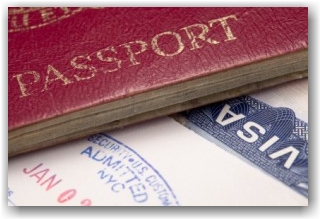
It’s almost that time of year again for H-1B filing season FY 2016 (commencing April 1, 2015), and it’s not too early for employers to be discussing hiring needs with their management team and assessing where in the organization they wish to sponsor H-1B professionals, and identifying potential candidates that they may want to sponsor for H-1B status. This could include, for example, recent graduates employed pursuant to F-1 Optional Practical Training, foreign nationals in TN status that the company may wish to sponsor for permanent residence, and candidates in L-1 status working for other employers or in some other non-immigrant classification who would need to change their status to H-1B in order to extend their stay and accept new employment.
The H-1B job offer and the job description must be for a specialty occupation that requires a minimum of a bachelor’s degree or its foreign equivalent.
What is the definition of a specialty occupation? A specialty occupation requires the theoretical and practical application of a body of specialized knowledge along with at least a bachelor’s degree or its US equivalent. For example, architecture, engineering, IT, mathematics, physical sciences, social sciences, medicine and health, education, business specialties, accounting, law, and the arts are considered specialty occupations.
Small to medium-size companies are frequently asked to justify why the position requires someone with a bachelor’s degree and to explain, through various types of evidence including organizational charts, examples of work being produced, the education of previous employees in the position, etc., why their business is more unique than other similar businesses in their industry that they would require a candidate with a bachelor’s degree in a particular position.
Bachelor’s Degree equivalency can be attained through a single-source foreign degree that meets US standards, a combination of a degree and work experience, or a work experience alone equivalency that meets the “3 for 1” rule; namely, that 3 years of work experience is equivalent to 1 year of university level education (this requires an expert credential evaluation by a service or university that is authorized to evaluate work experience for degree equivalency).
Note: Bear in mind that if you have a skilled immigration professional that has a strategy in place for their green-card sponsorship (permanent residency), it is essential that the degree and its equivalency be carefully reviewed so that it will be compatible with the classification under which they will file their labor certification, the first step in the green-card process.
USCIS now requires very detailed job descriptions for H-1B visa petitions that contain the position summary, duties and responsibilities, as well as the percentage allocation spent on each job duty. It is hard to imagine that a job description with a 15-bullet point list of duties and a full page in length is insufficient, but when you work with a skilled immigration practitioner, this can be successfully argued against the O*NET occupational classification system and the Occupational Outlook Handbook, which is the primary source of job information for USCIS and the Department of Labor.
In summary: Employers need to be prepared with complete job descriptions for their H-1B prospective employees and document the need for a degreed professional thoroughly in their casework.
Discuss your H-1B requirements as well as any other business immigration matters by contacting us at info@immigrationcompliancegroup.com, or call 562 612.3996.
Tags: DOL, EAD, F-1 Students, H-1B Degree Requirements, H-1B Filing Season, H-1B Filing Tips, H-1B Job Descritions, H-1B Visa, OPT, Specialty Occupations, USCIS
Posted in Department Of Labor (DOL), H-1B Visas, Immigration News, Staffing Agencies, USCIS | Comments Off on H-1B Visas – The Job Description and Degree Requirement
Friday, November 21st, 2014

We applaud President Obama’s announcement of broad executive action to offer temporary relief from deportation to millions of undocumented immigrants, stating that the separation of families or the oppression of low-wage immigrant workers is “not who we are as Americans.”
Concurrent with the televised nationwide presidential address last night, the Department of Homeland Security (DHS) Secretary issued a series of memoranda outlining the various facets of the programs and policies which would constitute, in total, “executive action” relating to immigration matters such as: Revising Removal Priorities, ending Secure Communities and replacing it with a New Priority Enforcement Program, expanding DACA, extending DACA to Parents of US citizens and Permanent Residents, revising parole rules, expanding Provisional Waivers to spouses and children, modernizing high-skilled business-related immigration, and more. We link to this information above.
Additional specific information on the initiatives contained in the Executive Action taken by President Obama can be found here
Tags: Congress, DACA, Department Of Homeland Security (DHS), Deportation, Executive Action, H-1B Visas, Immigrant Visas (I-140 Petitions), Immigration News, Immigration Reform, Parole Rules, PERMANENT RESIDENCY, Provisional Waivers, Removal, Securre Communities, Skilled Workers, USCIS
Posted in Comprehensive Immigration Reform, Congress, DACA | DAPA, Department Of Homeland Security (DHS), H-1B Visas, Immigration News, USCIS | Comments Off on The Facts: Fixing a Broken Immigration System Through Executive Action
Tuesday, October 7th, 2014
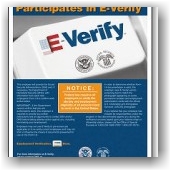
IMPORTANT INFORMATION
As of January 1, 2015, E-Verify will begin disposing of E-Verify records that are over 10 years old. In order to retain case information, E-Verify employers may download and save the new “Historic Records Report.” If you want a record of your cases that are more than 10 years old, you must download the new Historic Records Report before December 31, 2014. The report will include all transaction records for cases more than 10 years old. The report is only available until December 31, 2014.
NOTE – this Report will ONLY BE AVAILABLE from October 1, through December 31, 2014. The Fact Sheet provides more information as to how to proceed to download applicable E-Verify records.
If you were not using E-Verify on or before December 31, 2004, you do not need to download the report. There will be no records to report. Note that E-Verify will continue this practice on an annual basis.
:::::::::::::::::::::::::::::::::::::::::::::
USCIS Now Offering I-9 Webinars On-Demand
On September 25, 2014, USCIS published the first Form I-9 Webinar On – Demand. Now you can watch the free Form I-9 webinar at any time.
Choose the chapters of your choice or watch the entire 22 minute video in one sitting. You will see how to complete Sections 1, 2 and 3, best practices
and much more. It’s a great training tool. Visit I-9 Central to learn more and view other videos in the multi-media section.
 Form I-9 Webinar on Demand | USCIS uscis.gov
Form I-9 Webinar on Demand | USCIS uscis.gov
Tags: E-Verify, E-Verify Records Retention, Employer Compliance Policy, form I-9, I-9 On-Demand Webinars, I-9/E-Verify News, ICE, Immigration News, OSC, USCIS
Posted in Employer Compliance, I-9/E-Verify News, ICE, Immigration News, OSC, USCIS | Comments Off on E-Verify Records Retention and Disposal | I-9 Webinars On-Demand
Wednesday, May 7th, 2014
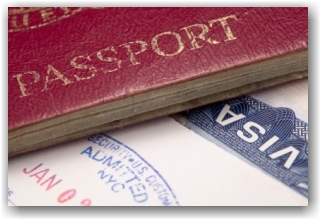
Under existing regulations, DHS does not extend employment authorization to dependents (also known as H-4 nonimmigrants) of H-1B nonimmigrant workers. The change proposed by DHS, would allow H-4 dependent spouses of certain H-1B nonimmigrant workers to request employment authorization, as long as the H-1B worker has already started the process of seeking lawful permanent residence through employment.
Eligible individuals would include H-4 dependent spouses of principal H-1B workers who:
- Are the beneficiaries of an approved Form I-140, Immigrant Petition for Alien Worker; or
- Have been granted an extension of their authorized period of stay in the United States under the American Competitiveness in the Twenty-first Century Act of 2000 (AC21) as amended by the 21st Century Department of Justice Appropriations Authorization Act. AC21 permits H-1B workers seeking lawful permanent residence to work and remain in the United States beyond the six-year limit. Refer to AC 21 12/27/2005 Aytes Memo for details.
Proposal to Enhance Opportunities for Highly-Skilled Workers: H-1B1 (Chile and Singapore) and E-3
Specifically, the change to the regulation would:
- Update the regulations to include nonimmigrant high-skilled specialty occupation professionals from Chile and Singapore (H-1B1) and from Australia (E-3) in the list of classes of aliens authorized for employment incident to status with a specific employer.
- Clarify that H-1B1 and principal E-3 nonimmigrants are allowed to work without having to separately apply to DHS for employment authorization. Under current regulations, employers of workers in E-3, H-1B1, or CW-1 status must generally file a petition requesting the extension of the employee’s status well before the initial authorized duration of status expires.
- Allow E-3, H-1B1 and CW-1 nonimmigrant workers up to 240 days of continued work authorization beyond the expiration date noted on their Form I-94, Arrival/Departure Record, while the extension request is pending.
It would affect workers in specialty occupation nonimmigrant classifications for professionals from Chile and Singapore (H-1B1) and Australia (E-3), as well as Commonwealth of the Northern Mariana Island (CNMI)-Only Transitional Workers (CW-1).
Finally, this proposal would also expand the current list of evidentiary criteria for employment-based first preference (EB-1) outstanding professors and researchers to allow the submission of evidence comparable to the other forms of evidence already listed in the regulations. This proposal would harmonize the regulations for EB-1 outstanding professors and researchers with other employment-based immigrant categories that already allow for submission of comparable evidence.
Both Notices of Proposed Rulemaking will soon publish in the Federal Register. DHS encourages the public to comment on the proposed rules through www.regulations.gov. All public comments will be considered before the final rules are published and go into effect. We will keep you posted on next steps when this actually becomes effective.
The DHS Press Release
Tags: AC21, Department Of Homeland Security (DHS), DOL, E-3 Spouse Work Authorization, eb-1, eb-2, eb-3, H-1B Specialty Workers, H-1B1 Spouse Work Authorization, H-4 Work Authorization, Immigrant Visas (I-140 Petitions), Immigration News, PERM Labor Certification, USCIS
Posted in Department Of Homeland Security (DHS), Department Of Labor (DOL), H-1B Visas, Immigrant Visas (I-140 Petitions), Immigration News, USCIS | Comments Off on DHS Announces Proposed Rulemaking for H-4 Spouse Work Authorization
Thursday, April 10th, 2014

Though the notice is preliminary and subject to change, it offers over half a million DACA recipients vital information about what they should do to prepare for the road ahead. Refer here
Tags: DACA, DACA Guidance, DACA Renewals, Deferred Action for Childhood Arrivals, Immigration Legislation, Immigration News, Immigration Reform, USCIS
Posted in DACA | DAPA, Immigration Legislation, Immigration News, USCIS | Comments Off on DACA Recipients – USCIS Releases Guidance on the Application Renewal Process
Wednesday, February 12th, 2014
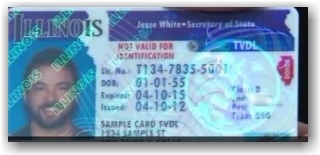
Last October, CA was the 10th state to sign into law driver’s “permits” for undocumented immigrants. In response to an email concerning this topic and whether this would be an acceptable List B document for I-9 purposes, the OSC posted a Technical Assistance letter response a few days ago on its website.
It has been my understanding that the permits will contain language that states that they are not to be used for “federal official purposes,” and will contain a notice on the card that reads: “This license is issued only as a license to drive a motor vehicle. It does not establish eligibility for employment, voter registration, or public benefits. ”
The matter, however, is timely addressed and is a reminder to examine driver’s licenses more closely and read the fine print on the front and back. Here’s a link to the letter that was posted on Feb. 7th. You’ll see it posted under the heading “Fiscal Year 2014.”
Also, here’s an article with an example of the card being used in Illinois stating “not valid for identification” indicated very clearly at the top of the card.
If any of our readers more recently have run across one of these cards presented during the I-9 process, please share with us.
Tags: CA passes law to issue Driver's Licenses to Undocumented, DACA, Deferred Action, DMV, Driver's License for Undocumented, I-9 Employment Eligibility, I-9/E-Verify News, Immigration News, Legal Workforce, List B Document
Posted in Comprehensive Immigration Reform, Employer Compliance, I-9/E-Verify News, Immigration Legislation, OSC, USCIS | Comments Off on Will Driver’s Licenses for the Undocumented be Acceptable for I-9 Purposes?
Wednesday, January 22nd, 2014
 If you Previously had an H-1B for Less than 6 Years
If you Previously had an H-1B for Less than 6 Years
Pursuant to § 212(g)7) of the The Act, if you had an H-1B in the past and were in the USA for less than 6 years, you may be eligible to recoup the time that is remaining on the 6-year maximum period of stay to accept employment with a new employer – without being counted against the cap. An example of this would be someone who works for 3 years in H-1B classification and decides to go back to school on an F-1 student visa. This individual would be eligible to apply for an H-1B for the remaining 3 years at any time of the year.
If you are abroad for at least one year, you have the choice to either apply for a “new” cap H-1B for a full 6-year period, or take advantage of the remainder option if you previously had an H-1B.
H-1B 7th Year Extensions – How This Works
If you are the beneficiary of a labor certification or an I-140 petition that was filed 1 year prior to your 6th year in H-1B status, pursuant to §106 of AC21, you are permitted to file for a 7th year extension. You are also permitted, according to §104(c) of AC21, to apply for a 3-year extension of your H-1B when you have an approved I-140 petition and are unable to move forward with filing your permanent residency case due to employment-based immigrant visa country limits (referred to as retrogression).
If you are in the US and out of status due to a layoff, or are abroad, you are entitled to a 7th year extension of your H-1B if your labor certification or I-140 petition was filed before your 6th year in H-1B status with either the sponsoring employer, or with a new employer. You will more than likely be required to consular process your case in these scenarios.
It is recommended that you seek the advice of a skilled immigration professional with the above cases as they are complex in nature.
You can sign up to receive our information here
Tags: Cap-Exempt, DOL, DOS, H-1B, H-1B 7th Year, H-1B Cap, LCA, Remainder Option, Specialty Occupation, USCIS
Posted in Department Of Labor (DOL), Department of State, H-1B Visas, Immigrant Visas (I-140 Petitions), Immigration News, US Consulates, USCIS | Comments Off on Avoiding the H-1B Cap
Wednesday, January 15th, 2014
 There are certain classes of non-profit employers who are exempt from the H-1B cap. The exemption from the cap only applies to institutions of higher education, non-profit research institutions, government research institutions, and non-profits formally affiliated with an exempt educational institution. Let’s discuss this.
There are certain classes of non-profit employers who are exempt from the H-1B cap. The exemption from the cap only applies to institutions of higher education, non-profit research institutions, government research institutions, and non-profits formally affiliated with an exempt educational institution. Let’s discuss this.
Institutions of higher education: Under the definition, an institution of higher education is one which:
- admits students who have completed secondary education;
- is licensed to provide education beyond secondary school;
- provides educational programs for which the institutions award bachelors’ degrees or provide programs of not less than 2 years that are acceptable for full credit toward bachelors’ degrees;
- is a public or nonprofit institution; and
- is accredited or has been granted pre-accreditation status by a recognized accrediting agency.
What does it mean to be related or affiliated to a higher education institution nonprofit entity?
The USCIS states that it is sufficient that a nonprofit entity is related or affiliated to an institution of higher education through shared ownership, control or be somehow affiliated to the higher education institution as a member, branch or subsidiary.
This narrow definition makes the types of non-profits that qualify for this exemption few and far between. For instance, non-profit service, community, policy and arts organizations would not qualify for the exemption from the H-1B cap. Unless the non-profit employer is primarily devoted to research, or is formally affiliated with a university, it will not qualify as a cap-exempt H1B petitioner. Public secondary schools do not qualify for H1B cap-exemption unless they have a formal affiliation agreement with a college or university. However, the exemption does cover certain professionals employed by a for-profit entity but but does when working at an exempt location, as long as the work continues to serve the core mission of the exempt institution, such as a physicians’ practice group affiliated with and located at a university teaching hospital.
Nonprofit Research Organizations | Government Research Organizations: Nonprofit research organizations or governmental research organizations, are defined in 8 CFR 214.2(h)(19)(iii)(C), as follows:
- A nonprofit research organization is an organization that is primarily engaged in basic research and/or applied research.
- A governmental research organization is a United States Government entity whose primary mission is the performance or promotion of basic research and/or applied research.
Basic research is general research to gain more comprehensive knowledge or understanding of the subject under study, without specific applications in mind. Basic research is also research that advances scientific knowledge, but does not have specific immediate commercial objectives although it may be in fields of present or potential commercial interest. It may include research and investigation in the sciences, social sciences, or humanities.
Applied research is research to gain knowledge or understanding to determine the means by which a specific, recognized need may be met. Applied research includes investigations oriented to discovering new scientific knowledge that has specific commercial objectives with respect to products, processes, or services. It may include research and investigation in the sciences, social sciences, or humanities.
Conclusion
It should be noted that all of the criteria above must be met in order for an institution or an organization to qualify for a cap-exempt status for H-1B purposes. Such institutions and organizations can indicate that their H1B filing is cap exempt by marking Form I-129 (Petition of Non-Immigrant Worker) with a “yes” answer to questions 1, 2, or 3 in Part C of the H1B Data Collection and Filing Fee Exemption Supplement. Bear in mind that an employer or a foreign national who wishes to seek H-1B status under a cap-exempt petition must verify that they qualify for the cap exemption under one of the three categories above. It is recommended that you work with an immigration practitioner that understands this casework as the analysis is often complex. If you’d like to become a client of our office, please contact us at info@immigrationcompliancegroup.com or call 562 612-3996.
Tags: Department Of Homeland Security (DHS), DOL, H-1B Exempt Employers, H-1B NonProfits, H-1B Professionals, H-1B Visas, Immigration News, Labor Condition Application, LCA, Specialty Occupation, USCIS
Posted in Department Of Homeland Security (DHS), Department Of Labor (DOL), H-1B Visas, Immigration News, USCIS | Comments Off on Who are H-1B Exempt Employers?
Sunday, January 5th, 2014
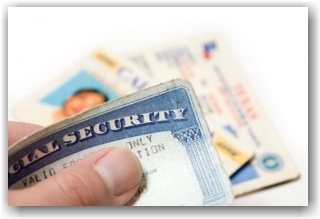 DHS/ICE continues to issue Notices of Intent to Fine (NOFs) at an unprecedented rate for Form I-9 related infractions. Mistakes occur in the I-9 process, it’s inevitable. While establishing a written compliance policy, training and careful prevention is the best approach. All employers should take time at the beginning of each year to conduct an internal audit and self-examination of their systems, operating procedures, and past and present practices for handling I-9s, as well as to access training needs for the employees charged with handling and supervising the I-9 process. We also recommend that you review your E-Verify submissions, as well as revisiting just how compliant your I-9 software really is with your vendor if you are using an electronic system.
DHS/ICE continues to issue Notices of Intent to Fine (NOFs) at an unprecedented rate for Form I-9 related infractions. Mistakes occur in the I-9 process, it’s inevitable. While establishing a written compliance policy, training and careful prevention is the best approach. All employers should take time at the beginning of each year to conduct an internal audit and self-examination of their systems, operating procedures, and past and present practices for handling I-9s, as well as to access training needs for the employees charged with handling and supervising the I-9 process. We also recommend that you review your E-Verify submissions, as well as revisiting just how compliant your I-9 software really is with your vendor if you are using an electronic system.
While there are many checklists and do-it-yourself guides and webinars available on the Internet and elsewhere, consulting a licensed attorney or specialist in the field who is familiar with I-9 and E-Verify compliance issues can save employers hours of research, provide a solution tailored to your organization, and save you thousands of dollars in fines and penalties should ICE knock on your door.
When ICE notifies an employer of their intention to perform an audit, it opens the door for an onslaught of inquiries and investigation from other government agencies that range from SSA mis-match issues to Department of Labor (DOL) wage and hour, USCIS, IRS, and more if you have areas of incompliance in your operating procedures. This is not the time during an audit when under pressure to clean up compliance problems.
New employers are often more at risk because many are not even aware of the I-9 requirement, and probably are also unaware of the need for all employees to complete the I-9 Form. Some are aware, but they lack knowledge concerning the regulations that govern the form; such as, timeframes, acceptable documents, form retention, and other important details that are integral to the process. Particularly, there are problems with industries such as IT consulting, healthcare, staffing agencies, and other organizations with multiple locations in regard to completing the I-9-Form remotely with the employer’s designated agent and employee in different locations.
These are just a few reasons why we urge you to assess the strengths and weaknesses of your present compliance program, and start the New Year fresh with a renewed commitment to implement best practices that will provide the foundation upon which you can develop and maintain a more compliant business and workforce.
You might be interested in joining our LinkedIn group, I-9/E-Verify: Smart Solutions for Employers,” and signing up to receive via RSS feed or email our Blog posts.
Tags: +, Department Of Homeland Security (DHS), DOL, E-Verify, I-9 AUDIT, I-9 Best Practices, I-9 Comipliance, I-9 Form, I-9 Training, I-9/E-Verify News, ICE, Immigration News, Legal Workforce, OSC, SSA
Posted in Department Of Homeland Security (DHS), Department Of Labor (DOL), Employer Compliance, Healthcare, I-9/E-Verify News, ICE, Immigration News, OSC, Social Security, Staffing Agencies, USCIS | Comments Off on Compliance Audits are Recommended for Employers at the Beginning of the New Year
Friday, January 3rd, 2014

The H-1B visa category is one of the most used visa classifications by US employers and is available to professionals that will work in a specialty occupation that generally requires a minimum of a bachelor’s degree or its equivalent.
Last year, the number of H-1B visa petitions filed in the first 5 days exceeded the entire H-1B visa allotment. Hundreds of employers were unable to hire all the foreign-based professional talent that they required, and their petitions went into a lottery pool, left to chance and uncertainty.
Given that we are seeing improvements in the economy, it is anticipated that this filing season will be the most competitive one in many years. Just to review…There is a limit of 85,000 H-1B visas available each fiscal year, 20,000 of which are reserved for individuals who have graduated with an advanced degree (a master’s or higher degree) from a US college or university that is accredited by a nationally recognized accrediting agency or association. Pre-accreditation status is also acceptable. Secondly, the school must be a public or other nonprofit institution. If these requirements are not met, the candidate will not qualify for the master’s degree exemption. It is also to be noted that employers stand a stronger chance obtaining advanced degree petition approvals, even if the position being offered only requires a bachelor’s degree or its equivalent.
Our position is that it’s just not too early to start assessing where you’d like to add personnel and to start working with your immigration provider on such important matters as:
1) Credential evaluations for prospective employees with foreign degrees
2) Thorough job descriptions indicating the percentage of time spent on core areas of the position
3) Needed updates to your corporate stats and profile information
4) Updating intake questionnaires for H-1B employees
5) For new employers who have previously not filed H-1Bs and are not in the databases accessed by government agencies, be prepared for a request to submit to the Department of Labor iCERT system for Labor Condition Applications (LCA) a copy of your IRS letter confirming your EIN number. It is also not unusual for them to request your corporate formation documents before they will certify your LCA. H-1B petitions will be denied if not accompanied by a certified Labor Condition Application. It might be advisable to file your LCA’s in late January or February even though this will shorten a few months from the 3-year initial approval.
If the prospective employee is a national of Canada, Mexico, Australia, Singapore or Chile you have other options to consider. Canadian and Mexican professionals qualify for TN status (pursuant to Trade NAFTA). You can file anytime of the year under this classification; there are no quotas, applicants can apply right at the border, and the 3-year period of stay can be extended indefinitely. Here is a link to the list of occupations that qualify for TN classification.
Australian nationals are eligible for E-3 status in 2-year increments and can consular process their applications, with unlimited extensions available. A Labor Condition Application is required for these cases. Nationals from Singapore and Chile qualify according to Free Trade Agreements for the H-1B1 classification. There is a quota for this category that has never been reached.
If you are contemplating the hire of a professional who currently holds H-1B status with another employer, they are exempt from the quota and can start working for you immediately even though the petition is pending approval.
We encourage employers to call us with any questions that you might have or if you’d like to retain our firm to handle your H-1B filings. Our email: info@immigrationcompliancegroup.com or by phone 562 612.3996.
Tags: 2015 H-1B Filing Season, CBP, Consular Processing, DOL, E-3 Visas, Employment Visas, H-1B Cap, H-1B Visa, H-1B1 Visas, Immigration News, Labor Condition Application, Nonimmigrant Visas, Specialty Occuations, tn, USCIS
Posted in Canada, Customs & Border Protection(CBP), Department Of Labor (DOL), H-1B Visas, Immigration News, TNs, US Consulates, USCIS | Comments Off on It’s Beginning to Look A lot like H-1B Filing Season 2015!










